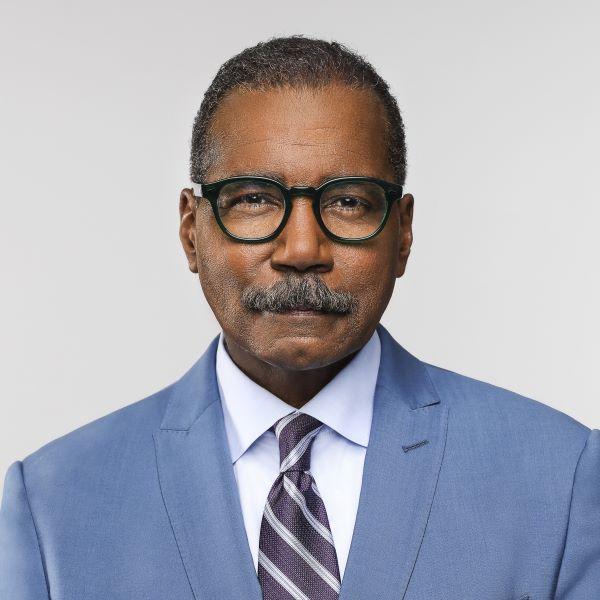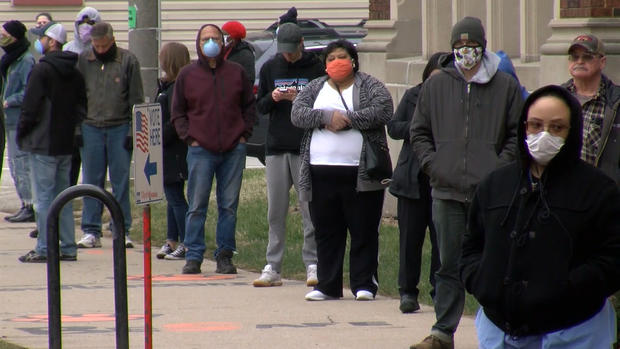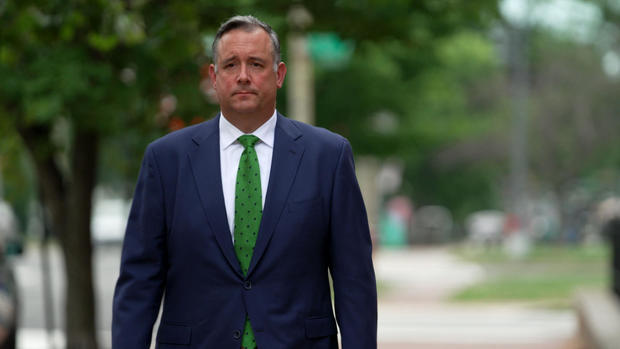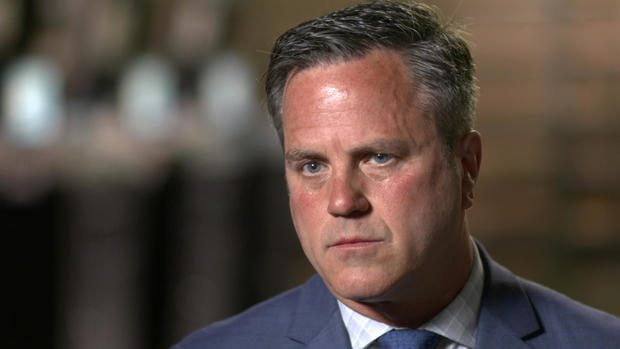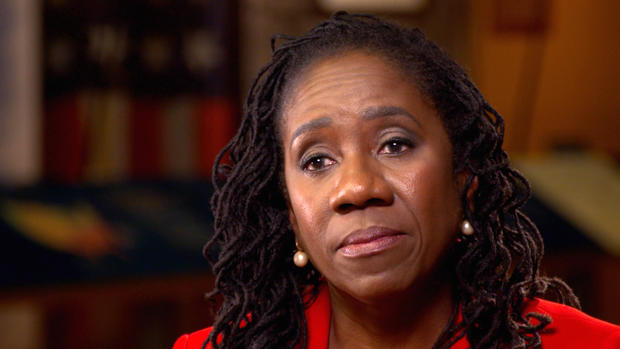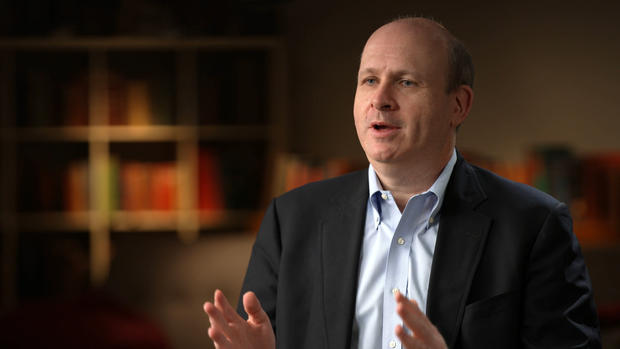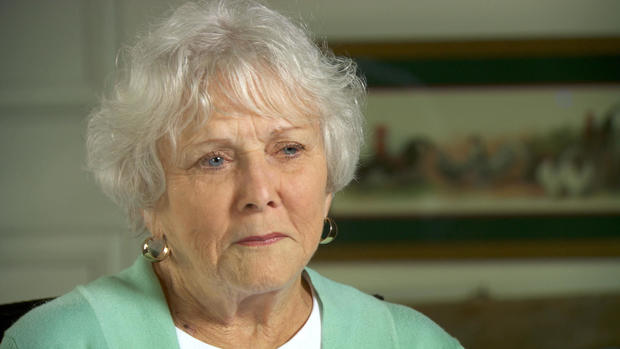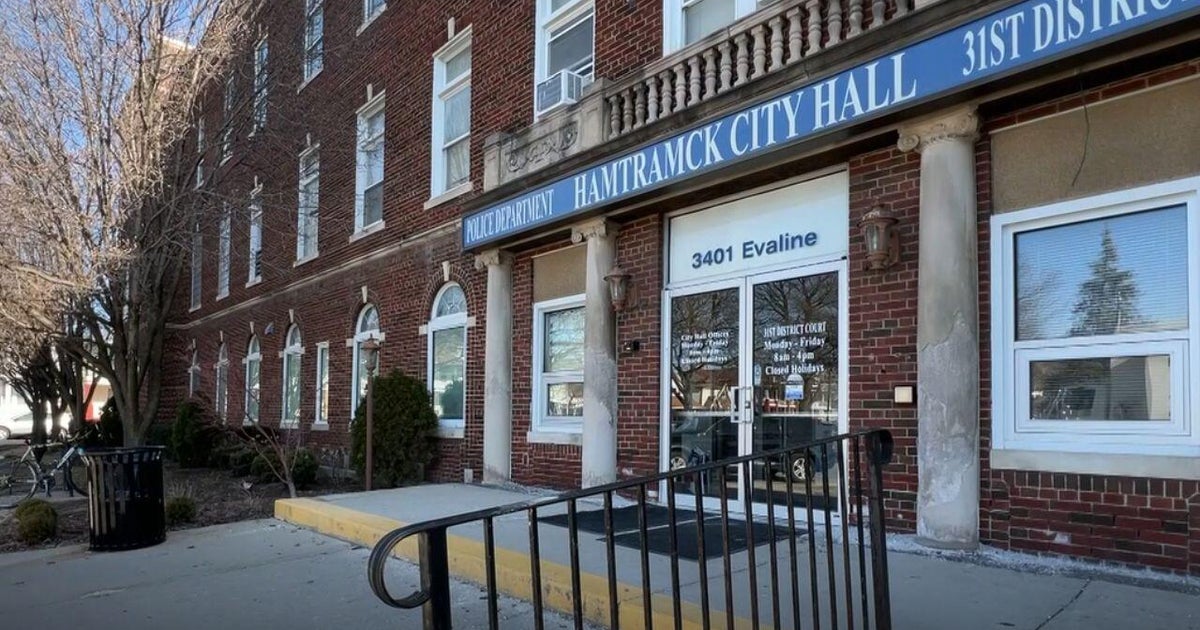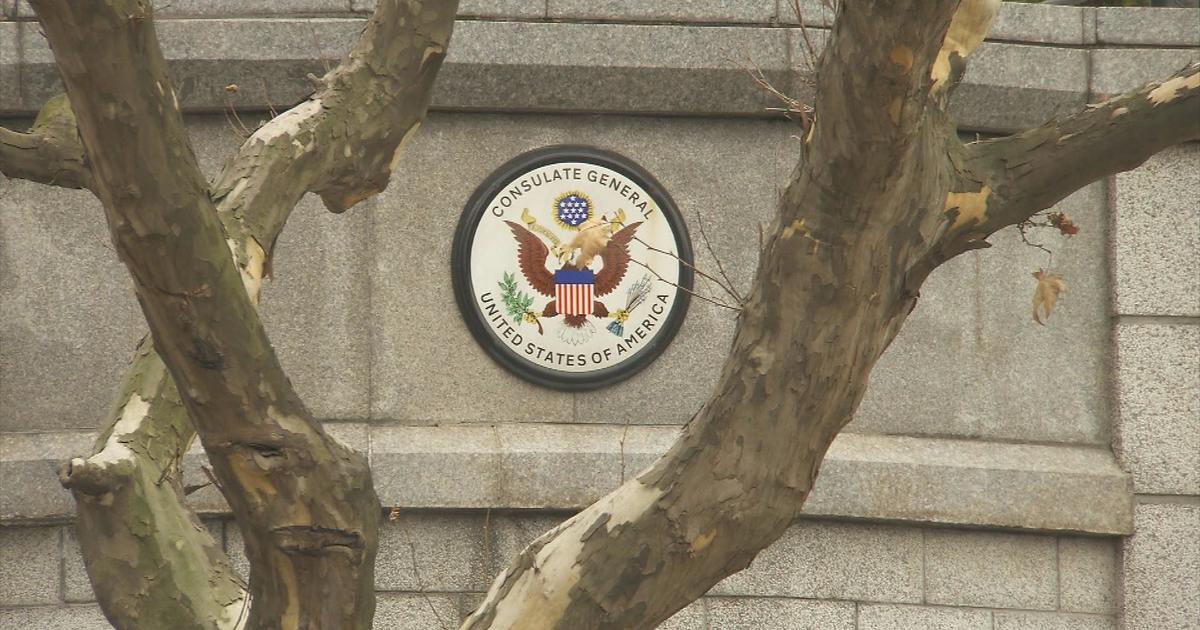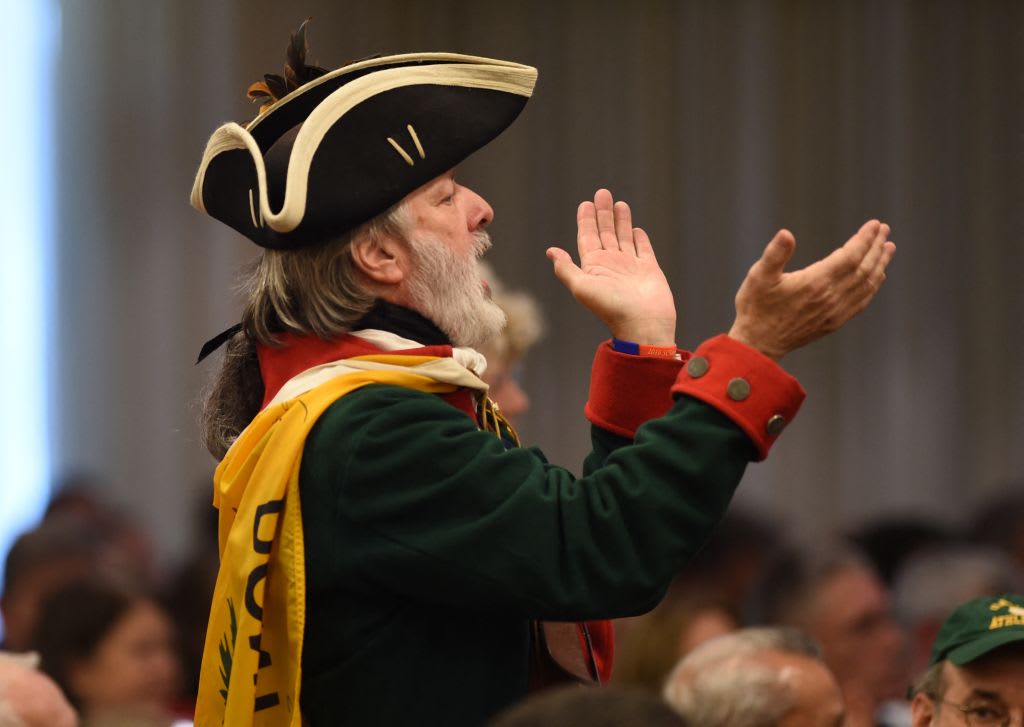How the coronavirus and politics could impact voting in the 2020 general election
On Tuesday, voters will cast ballots in three state primary elections. So far this election year, voting during the pandemic has been an exercise in chaos, long lines and aggravation. With no end to the scourge and no vaccine in sight, a recent Pew Research survey found 70% of Americans want to stay safe and mail in their ballots for the November general election. Voting absentee or by mail has been growing for decades. In 2016 almost a quarter of all votes was sent through the mail. But this year high demand has strained the resources of red states and blue and the practice has become embroiled in political controversy. Democrats want to expand access to mail in voting. President Trump says it's prone to fraud and threatens his reelection. The controversy ignited this spring in Wisconsin, a critical battleground state President Trump won in 2016 by less than 1%.
It might not look like it, but on this day, April 7, the state of Wisconsin was under a stay at home order, because of the coronavirus. In Milwaukee, residents stood in lines for hours waiting to cast ballots for judges and the presidential primaries. Many wore masks, some bore signs of frustration.
The lines of frustration were preceded by weeks of intense political wrangling over how or whether to hold an election in a worsening pandemic. Governor Tony Evers, a Democrat, originally called for the election to proceed, but in late March, as the number of COVID-19 cases climbed, he first proposed sending absentee ballots to all registered voters, then the day before the election, issued an executive order postponing it.
Governor Tony Evers: There's not a sufficiently safe way to administer in-person voting tomorrow.
Republicans fumed at the last-minute move. The political brawl ended up before the Wisconsin and the U.S. Supreme Courts. Just hours before the polls were to open, the courts handed each side a victory. The Republicans got the election reinstated. Democrats won approval to count late-arriving absentee ballots postmarked by election day.
Justin Clark, senior counsel for President Donald Trump's campaign, advised Wisconsin Republicans. He blames Democratic governor Tony Evers for the chaos and told us the Democrats are cynically using the pandemic to expand their voter base with mail in absentee ballots.
Justin Clark: We have tons and tons of different ways for people to vote if they have a fear of COVID-19. We have early vote that goes on for weeks ahead of an election in-- in most places. But make no mistake. Voting in person is far more secure and safer than voting by-- by mail.
Bill Whitaker: Even in the time of pandemic?
Justin Clark: By safer, what I mean is that it's gonna be a much more secure outcome.
Neil Albrecht: In-person voting should not have happened in the state of Wisconsin on April 7th. It was dangerous. It was reckless.
Neil Albrecht is head of Milwaukee's election commission. He told us the coronavirus scared so many poll workers - half of them over age 60 - he could man only five polling places. He usually has 180.
Bill Whitaker: Americans take great pride in our democratic system. Did that system suffer on April 7th?
Neil Albrecht: It suffered greatly. A lot of people in the state of Wisconsin had to choose between their health or casting a ballot. I don't believe that is a good representation of democracy.
The Wisconsin health department reported 71 people tested positive for COVID-19 after voting or working at the polls, but can't say definitively that was the cause. To avoid the virus, more Wisconsin voters cast absentee ballots in the primary than ever before.
Neil Albrecht: It was about an 800% request in absentee ballots.
Bill Whitaker: Did I hear you correctly? You had requests for 8 times more absentee ballots than normal?
Neil Albrecht: Absolutely. Absolutely. And I can tell you and I don't think this is unique to Wisconsin. States are not equipped for that type of surge.
Earlier this month in Georgia, in addition to having brand new voting machines malfunction, so many voters never received their absentee ballots, they ended up snaking around polling places on election day. In Wisconsin and Georgia the long lines were mostly in urban areas with large populations of Black and Latino voters.
Sherrilyn Ifill is president of the NAACP Legal Defense Fund. She says ballot regulations have accelerated since the Supreme Court weakened the voting rights act in 2013.
Sherrilyn Ifill: When we talk about voters being targeted, everyone knows that the low-hanging fruit is gonna be black voters-- black and Latino voters. We are the ones who stood in the street, and stood on the Edmund Pettus Bridge and risked our lives to be able to fully participate in the political process. And sometimes, when we talk about voter suppression now, we cover it with this veneer of partisan conversation, which allows people to turn away from what is fundamentally a very, very ugly racial issue in our country.
The Legal Defense Fund has gone to court in Texas, Louisiana and South Carolina to challenge voting restrictions. Late Friday, the Supreme Court rejected an emergency request by Texas Democrats to allow mail-in voting for all registered voters. The LDF had supported that case in lower court. Earlier in the week, the LDF won a ruling allowing Alabama voters to bypass photo ID and other requirements for absentee ballots in July runoff elections.
Bill Whitaker: What needs to be done to stop other Wisconsins from happening this fall?
Sherrilyn Ifill: There's a whole-- regime of measures, some of which involve in-person voting, and some of which involve-- absentee voting, that need to be in place in time for the November 2020 election.
Marc Elias, the Democratic party's lead attorney on voting rights, has gone to court in Georgia and 17 other states to make sure they have sufficient in-person polling sites, to remove or moderate restrictions to absentee voting and to make sure ballots aren't rejected without giving voters a chance to appeal. The GOP says Elias is trying to strip away election safeguards and has amassed a $20 million warchest to fight the Democrats in court.
Marc Elias: They spend all of their time and energy and money opposing voting rights.
Bill Whitaker: Opposing voting rights?
Marc Elias: Oh, I don't think there's any question. Whatever may have been going on under the surface in Republican circles and conservative circles in past election cycles they are now not just whispering the quiet part out loud, Donald Trump is screaming the quiet part out loud.
President Trump: The Democrats are also trying to rig the election by sending out tens of millions of mail in ballots, using the China virus, as the excuse for allowing people not to go to the polls. This will be in my opinion, the most corrupt election in the history of our country and we cannot let this happen.
Marc Elias: If you're Donald Trump and your approval ratings are where they are and your ceiling for-- for how many people will support you is as low as it is, you really only have one choice, which is to decrease the number of people who vote. And I think that that explains what Donald Trump is tweeting about, about voting, why he is demonizing vote by mail.
Bill Whitaker: Why is President Trump so concerned about vote by mail?
Justin Clark: Vote by mail is less secure than voting in person. We have countless instances this year of ballots that were mailed to different places. I mean, how many times have you had a birthday card or a Christmas card that didn't make it to somebody? Add on top of that trying to layer this in four months before an election, and you have a recipe for disaster.
Bill Whitaker: The president votes by mail.
Justin Clark: The president votes absentee. That's different. If you are absent, you are ill, you're outta state, you name it, there needs to be a mechanism whereby people can get their vote cast. And by the way, President Obama did it, President Bush did it. It's-- it's not uncommon.
Bill Whitaker: Exactly. It's not uncommon.
Justin Clark: Absentee voting. Universal vote by mail is very different. It's a very different thing.
Bill Whitaker: Sounds like a distinction without much of a difference.
Justin Clark: The difference is the volume. The volume of live ballots being mailed out to people without the signature check, without the signature match, without the signing of the outer envelope.
But the federal Election Assistance Commission provided states with a roadmap for expanding vote by mail during the pandemic, everything from ballot design to signature verification software. But to be ready by November, the states have to ramp up now. Congress appropriated $400 million to help the states. The Non-partisan Brennan Center at NYU calculated they'll need almost $4 billion.
Oregon's vote-by-mail process already is up and running. The state pioneered the practice in 1998. Lifelong Republican, Beverly Clarno, is Oregon's Secretary of State and a proponent of vote by mail.
Bill Whitaker: President Trump has attacked vote by mail. He's called it dangerous. He says it's subject to massive fraud. What do you think when you hear that?
Beverly Clarno: Well, I think that try it, you might like it.
Bill Whitaker: Try it, you might like it?
Beverly Clarno: Yeah. Try it, you might like it.
Clarno says the Oregon system she oversees is backed up with barcodes unique to each voter. She says it's more secure with drop boxes everywhere and produces some of the highest voter turnout rates in the country. Colorado, Hawaii, Utah and Washington also have moved to vote-by-mail elections.
Beverly Clarno: A lot of people fear there could be fraud… in the 2016 election, we had about 20 cases of people voting in two different states. So, we're just very certain that our system's very secure.
Bill Whitaker: Do you have any idea what percentage of the vote was-- was-- was fraudulent in that way--
Beverly Clarno: Well, in 2016, if we had 2.8 million voters-- and only 22 people tried to vote in two states, that's not too bad. I'm not a mathematician but that sounds like pretty good odds to me.
Bill Whitaker: So, why do you think vote by mail has become so controversial?
Beverly Clarno: Well, it's not controversial in Oregon. I think that if you'd ask most Oregonians, they'd say, quite frankly, I like voting at my kitchen table.
Most of the votes cast in this spring's elections were by mail or absentee. But Republicans in Iowa and Georgia are trying to prohibit election officials from sending absentee ballot applications to all registered voters. The Legal Defense Fund's Sherrilyn Ifill says the country should be united in ensuring everyone has the right to vote.
Bill Whitaker: So do you see this becoming a battle in the fall over just whose vote counts?
Sherrilyn Ifill: If a lot of people vote absentee, absentee ballots are not all counted on election night. And so we're gonna have to wait for those votes to be counted. This is-- we-- we-- we need to become grownup citizens. And we need to let the process play itself out. I think it's a shame that it's going to be a battle. But it is going to be a battle.
With the pandemic still bedeviling the country, election officials in most states expect the surge of absentee ballots to crest in November. Lawyers for both parties expect the lawsuits will intensify too.
Bill Whitaker: Does the result of the election hinge on these legal battles?
Justin Clark: The president views vote by mail as a threat to his election and I think-- I-- I think he's right. I think he's dead right. If we inject chaos and confusion into the election, and-- and we don't have faith in the result, I think that's-- a political threat to the president.
Marc Elias: The American voting system is quite fragile. And it is not a system that is built to handle a lot of stresses. A pandemic puts a unique stress on the system. And then on top of all of that, you have the president of the United States every day, virtually, telling people that the voting system is not fair, the voting system is rigged, the voting system is not to be trusted. And that is an external stress that makes everything about the voting process harder.
Produced by Marc Lieberman and Ali Rawaf. Broadcast associate, Emilio Almonte. Edited by Richard Buddenhagen.
Photo of Milwaukee residents in line © Patricia McKnight – USA TODAY NETWORK
